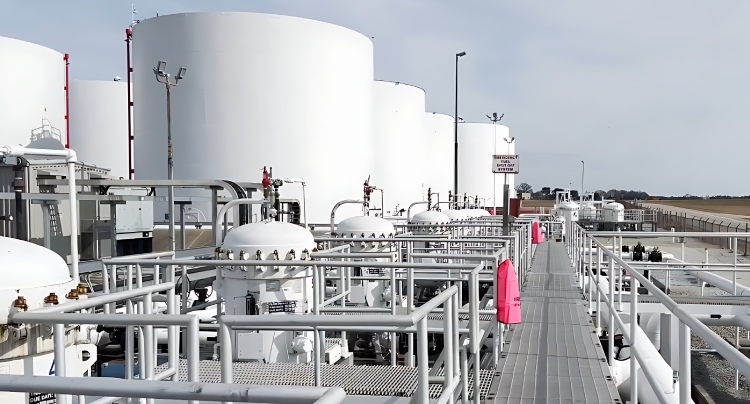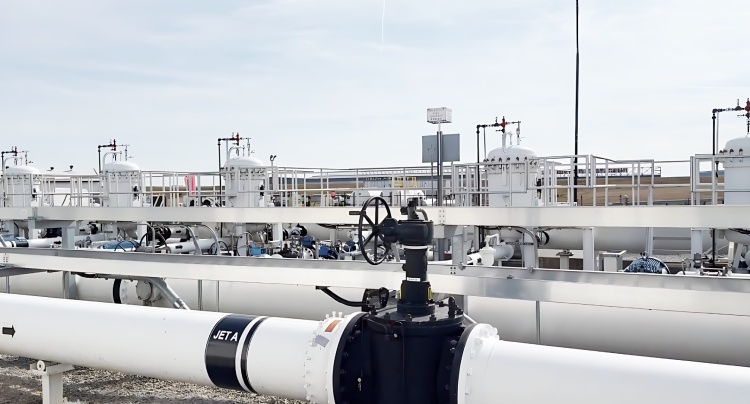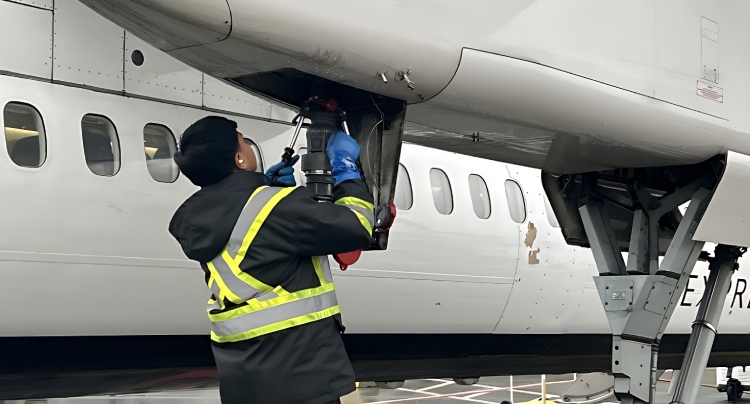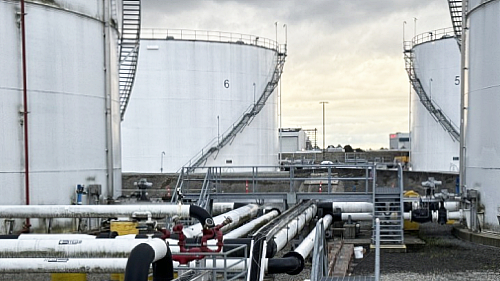Our Commitment to
Safety & Compliance
Handling aviation fuel comes with inherent risks, requiring stringent safety measures and regulatory compliance. Our protocols align with international safety regulations
Our goal is to protect people, assets, and the environment while ensuring seamless operations from tank farm storage to airport fuel dispensing and transportation.
IATA Fuel Quality Pool (IFQP)
International Civil Aviation Organization (ICAO) Guidelines
Occupational Safety and Health Administration Standards
Environmental Protection Agency (EPA) Regulations
Adherence to Rigorous Safety Protocols by Trained Personnel
With unwavering commitment to safety, our trained personnel enforce rigorous protocols preventing spills, mitigating fire risks, ensuring PPE compliance, and executing rapid emergency responses to protect people, assets, and the environment.
Fuel Spill Prevention & Containment
Implementing measures to prevent fuel spills and ensuring effective containment strategies to minimize environmental impact and safety hazards.
Fire & Explosion Risk Management
Identifying and mitigating risks associated with fire and explosions in fuel handling operations to protect personnel, assets, and the environment.
Personal Protective Equipment (PPE) Protocols
Establishing guidelines for the proper use of PPE to ensure the safety and health of personnel involved in fuel handling and related activities.
Emergency Response & Hazard Mitigation
Developing and executing plans for prompt and effective response to emergencies, including fuel spills and fires, to minimize risks and ensure safety.
Key Safety & Environmental Practices in Aviation Fuel Handling
Tank Farm Fuel Storage
- Regular inspections and maintenance of fuel storage tanks.
- Secondary containment systems to prevent leaks and spills.
- Automated monitoring systems for pressure, temperature, and fuel levels
- Advanced leak detection systems to promptly identify and address any potential leaks, ensuring environmental safety and operational integrity.
- Regular maintenance and inspections to ensure the hydrant system operates efficiently and safely, minimizing the risk of leaks and ensuring reliable fuel distribution.


Secure Airport Fuel Receiving & Transportation
- Use of certified fuel transport vehicles with spill-proof technology.
- Adherence to safe loading and unloading protocols to prevent contamination.
- Implementation of real-time tracking & monitoring for safe fuel transport.
- Hydrant System: Ensures efficient and safe fuel distribution at airports, minimizing the risk of spills and leaks.
- Cathodic Protection: Prevents corrosion in fuel storage tanks and pipelines, maintaining infrastructure integrity.
Efficient Into Plane Operations
- Filtered and quality-tested fuel to prevent contamination.
- Automated fueling systems to enhance efficiency and reduce errors.
- Strict personnel training on safe fuel handling and emergency response.
- Environmental protection measures: Immediate containment and cleanup procedures to minimize environmental impact in the event of a spill.
- Use of absorbent materials and barriers to contain and clean up spills quickly and effectively.
- Regular environmental impact assessments to ensure compliance with regulations and continuous improvement in spill response strategies.

Training & Continuous Improvement
We invest in continuous training programs for our workforce
✔ Compliance with fuel safety standards
✔ Emergency response planning and spill response drills
✔ Adoption of latest safety technologies
✔ Training on proper fuel handling techniques
✔ Ongoing education on quality assurance
✔ Hands-on workshops and simulations
✔ Regular assessments and certifications


